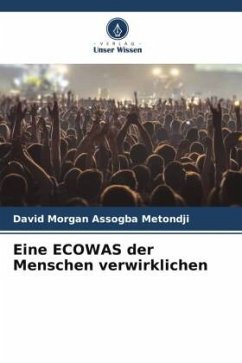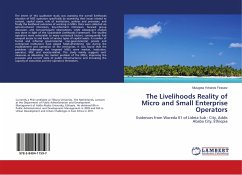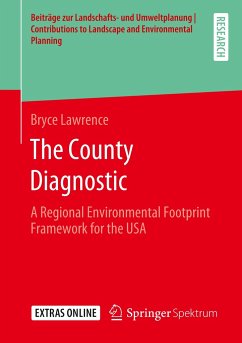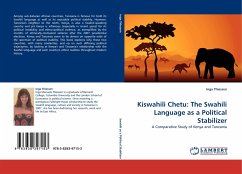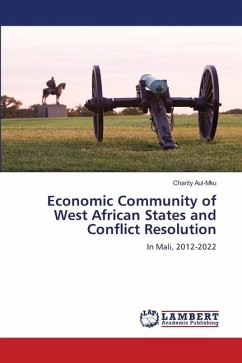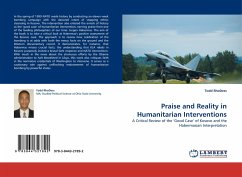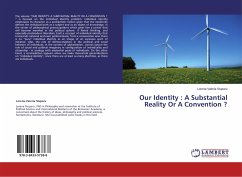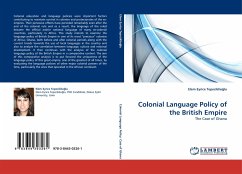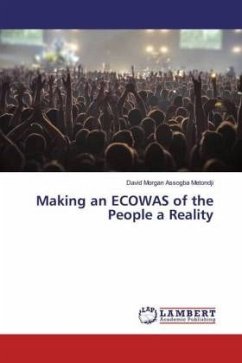
Making an ECOWAS of the People a Reality
Versandkostenfrei!
Versandfertig in 6-10 Tagen
27,99 €
inkl. MwSt.

PAYBACK Punkte
14 °P sammeln!
Regional integration is a tool not only for economic development, but also to maintain international peace and security. Thus, most of the countries in the world engaged into it just after the second world war, including the west Africa. The latter understood the need to move to an integration of the people, not only the states. Therefore agenda 2020 was set, but appears to have missed a key element in the strategy showcased by its pillars: there is no way to efficiently integrate the people without bringing together their cultures. Hence the relevance of adopting a pillar focused on that. Fro...
Regional integration is a tool not only for economic development, but also to maintain international peace and security. Thus, most of the countries in the world engaged into it just after the second world war, including the west Africa. The latter understood the need to move to an integration of the people, not only the states. Therefore agenda 2020 was set, but appears to have missed a key element in the strategy showcased by its pillars: there is no way to efficiently integrate the people without bringing together their cultures. Hence the relevance of adopting a pillar focused on that. From a diagnostic to suggestions, this book reveals the relevance of a cultural approach to regional integration at this twenty first century especially as far as ECOWAS is concerned. Without clouding language as key vector of cultural heritage, while providing insights to every single regional integration process.




